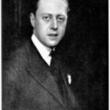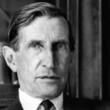The Amur River: Between Russia and China
(Libby/OverDrive eAudiobook)
Available Platforms
Description
"A gripping read with fascinating political insight." (Sunday Times, London)
"Elegant, elegiac and poignant...Thubron is an intrepid traveler, a shrewd observer and a lyrical guide... to the river, much of it along the border between these two powers at a time of rapid and tense reconfiguration of global geopolitics." (Washington Post)
The most admired travel writer of our time—author of Shadow of the Silk Road and To a Mountain in Tibet—recounts an eye-opening, often perilous journey along a little known Far East Asian river that for over a thousand miles forms the highly contested border between Russia and China.
The Amur River is almost unknown. Yet it is the tenth longest river in the world, rising in the Mongolian mountains and flowing through Siberia to the Pacific. For 1,100 miles it forms the tense border between Russia and China. Simmering with the memory of land-grabs and unequal treaties, this is the most densely fortified frontier on earth.
In his eightieth year, Colin Thubron takes a dramatic journey from the Amur’s secret source to its giant mouth, covering almost 3,000 miles. Harassed by injury and by arrest from the local police, he makes his way along both the Russian and Chinese shores, starting out by Mongolian horse, then hitchhiking, sailing on poacher’s sloops or travelling the Trans-Siberian Express. Having revived his Russian and Mandarin, he talks to everyone he meets, from Chinese traders to Russian fishermen, from monks to indigenous peoples. By the time he reaches the river’s desolate end, where Russia’s nineteenth-century imperial dream petered out, a whole, pivotal world has come alive.
The Amur River is a shining masterpiece by the acknowledged laureate of travel writing, an urgent lesson in history and the culmination of an astonishing career.
More Details
Similar Titles From NoveList
Similar Authors From NoveList
Published Reviews
Booklist Review
Acclaimed travel writer and novelist Thubron returns to the Russian-Chinese borderlands to follow a remote river with a turbulent past. Emerging from obscure bogs in the Mongolian wilderness, the Amur twists wide and murky through the taiga, draining over two-hundred tributaries before spilling into the Pacific. Earth's tenth largest river, it runs through some of the planet's least populated regions. Long fascinated by Russia, Thubron's earlier visits to Siberia probed an impoverished land, incompletely assimilated into the USSR. Today the region's economic prospects remain bleak, and grievances about Moscow are drowned out by complaints about China's regional influence. Across the border, the 1858 Treaty of Aigun, under which Russia seized eastern Siberia from China, remains a sore point. Thubron, now in his eighties, remains impressively consistent in his proclivity for spartan accommodations and opinionated, hard-living tour guides. But a new melancholy permeates his starkly elegant prose. The Amur was to be Russia's "artery to the Pacific," full of promise. Instead, it became "a labyrinth of shoals, shallows and dead ends," a land of desolate beauty and stunted possibility.
Publisher's Weekly Review
Novelist and travel writer Thubron (Night of Fire) evokes in this breathtaking account the beauty and harshness of the 1,100-mile-long Amur River that forms the border between Russia and China. Setting out on horseback from the river's source in Mongolia, where a campfire is "the sole human light seen only by wolves or woken bears," Thubron travels by sailboat, train, and car to the Russian town of Nikolaevsk-na-Amure, where, "thick with silt and pollution," the Amur empties into the Pacific Ocean. He writes sensitively and cogently about the life along the river's shores, profiling the semi-nomadic Buryats, whom Stalin and his Mongolian counterpart, Khorloogiin Choibalsam, persecuted relentlessly in the 1930s, and the Manchu, who rose up from the region in the 17th century and ruled China for nearly 300 years. In desolate villages, aged cities, crumbling monasteries, and roadside shrines, Thubron documents the interplay of politics and history, contrasting the "subdued fatalism" of Russians living in the river basin with the bustling optimism of the Chinese, whose glitzy restaurants and markets mask signs of discontent. Thubron's powers of observation and his dogged determination to complete this arduous journey--despite numerous injuries and a police interrogations--make this a top-notch travelogue. Agent: Clare Alexander, Aitken Alexander Assoc. (Sept.)
Kirkus Book Review
The celebrated British travel writer takes us on a fascinating journey along the Amur River. In his latest adventure, octogenarian Thubron planned to follow the river "as it flows through south-east Siberia then meets China, then breaks for the Pacific." For more than 1,000 of its 2,600 miles (which includes its source river, the Argun), the Amur forms the border between the Russian Far East and northeastern China. The Chinese call it Heilongjiang, which means "Black Dragon River, for the dragon's imperial grandeur." One of his first guides, a Mongolian horseman, warned him about the dangerous, "almost impassable" landscape. Shortly after starting out, the author suffered an injury, which forced him to question his body's ability to keep up--yet, as always, he persevered. Standing out as a foreigner in a region that rarely hosts travelers, Thubron became the object of covert attention. Often, this curiosity resulted only in extended gazes and innocent questions, but he also endured numerous police interrogations and a nagging fear that he was being followed. Accompanied by various guides, the author made his way through this vast, unforgiving territory by car, boat, and train, evoking with beautiful detail and compassion its rich history and culture. Though the region is shrouded with mistrust, Thubron effectively brings it to life. Throughout his trip, the author engaged in discussions with local residents, who openly shared their personal feelings and histories as if they were longtime friends. Many villagers lamented the loss of their native cultures and offered conflicting views about the ownership of the region. The Chinese spoke of Russian land grabs and the profound unease of Chinese artifacts lying inside Russian borders, while Mongolians and Russians claimed that the Chinese were stripping the land and infiltrating every aspect of business. Thubron also laments the demise of the region's Indigenous cultures and languages. Readers will, too, as they savor this enthralling travel narrative. A captivating portrait of a remote region of the world that many readers may know nothing about. Copyright (c) Kirkus Reviews, used with permission.
Booklist Reviews
Acclaimed travel writer and novelist Thubron returns to the Russian-Chinese borderlands to follow a remote river with a turbulent past. Emerging from obscure bogs in the Mongolian wilderness, the Amur twists wide and murky through the taiga, draining over two-hundred tributaries before spilling into the Pacific. Earth's tenth largest river, it runs through some of the planet's least populated regions. Long fascinated by Russia, Thubron's earlier visits to Siberia probed an impoverished land, incompletely assimilated into the USSR. Today the region's economic prospects remain bleak, and grievances about Moscow are drowned out by complaints about China's regional influence. Across the border, the 1858 Treaty of Aigun, under which Russia seized eastern Siberia from China, remains a sore point. Thubron, now in his eighties, remains impressively consistent in his proclivity for spartan accommodations and opinionated, hard-living tour guides. But a new melancholy permeates his starkly elegant prose. The Amur was to be Russia's "artery to the Pacific," full of promise. Instead, it became "a labyrinth of shoals, shallows and dead ends," a land of desolate beauty and stunted possibility. Copyright 2021 Booklist Reviews.
Publishers Weekly Reviews
Novelist and travel writer Thubron (Night of Fire) evokes in this breathtaking account the beauty and harshness of the 1,100-mile-long Amur River that forms the border between Russia and China. Setting out on horseback from the river's source in Mongolia, where a campfire is "the sole human light seen only by wolves or woken bears," Thubron travels by sailboat, train, and car to the Russian town of Nikolaevsk-na-Amure, where, "thick with silt and pollution," the Amur empties into the Pacific Ocean. He writes sensitively and cogently about the life along the river's shores, profiling the semi-nomadic Buryats, whom Stalin and his Mongolian counterpart, Khorloogiin Choibalsam, persecuted relentlessly in the 1930s, and the Manchu, who rose up from the region in the 17th century and ruled China for nearly 300 years. In desolate villages, aged cities, crumbling monasteries, and roadside shrines, Thubron documents the interplay of politics and history, contrasting the "subdued fatalism" of Russians living in the river basin with the bustling optimism of the Chinese, whose glitzy restaurants and markets mask signs of discontent. Thubron's powers of observation and his dogged determination to complete this arduous journey—despite numerous injuries and a police interrogations—make this a top-notch travelogue. Agent: Clare Alexander, Aitken Alexander Assoc. (Sept.)
Copyright 2021 Publishers Weekly.Reviews from GoodReads
Citations
Thubron, C., & Keeble, J. (2021). The Amur River: Between Russia and China (Unabridged). HarperAudio.
Chicago / Turabian - Author Date Citation, 17th Edition (style guide)Thubron, Colin and Jonathan Keeble. 2021. The Amur River: Between Russia and China. HarperAudio.
Chicago / Turabian - Humanities (Notes and Bibliography) Citation, 17th Edition (style guide)Thubron, Colin and Jonathan Keeble. The Amur River: Between Russia and China HarperAudio, 2021.
Harvard Citation (style guide)Thubron, C. and Keeble, J. (2021). The amur river: between russia and china. Unabridged HarperAudio.
MLA Citation, 9th Edition (style guide)Thubron, Colin, and Jonathan Keeble. The Amur River: Between Russia and China Unabridged, HarperAudio, 2021.
Copy Details
| Collection | Owned | Available | Number of Holds |
|---|---|---|---|
| Libby | 1 | 1 | 0 |

































